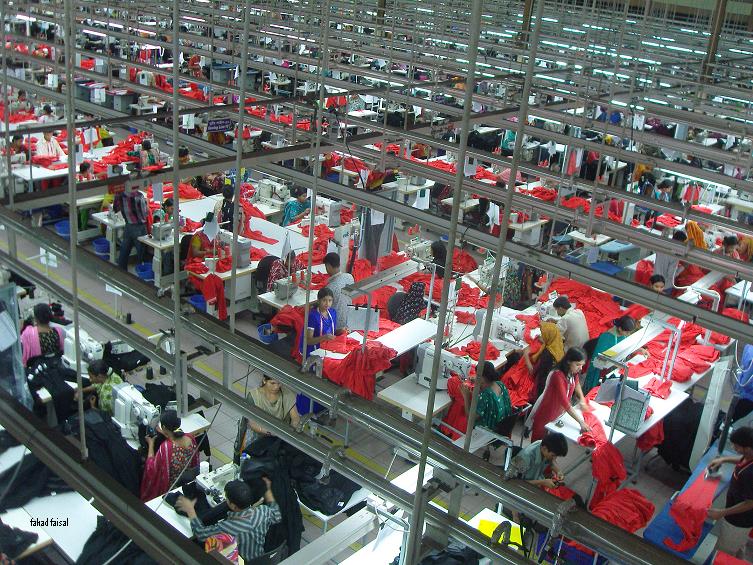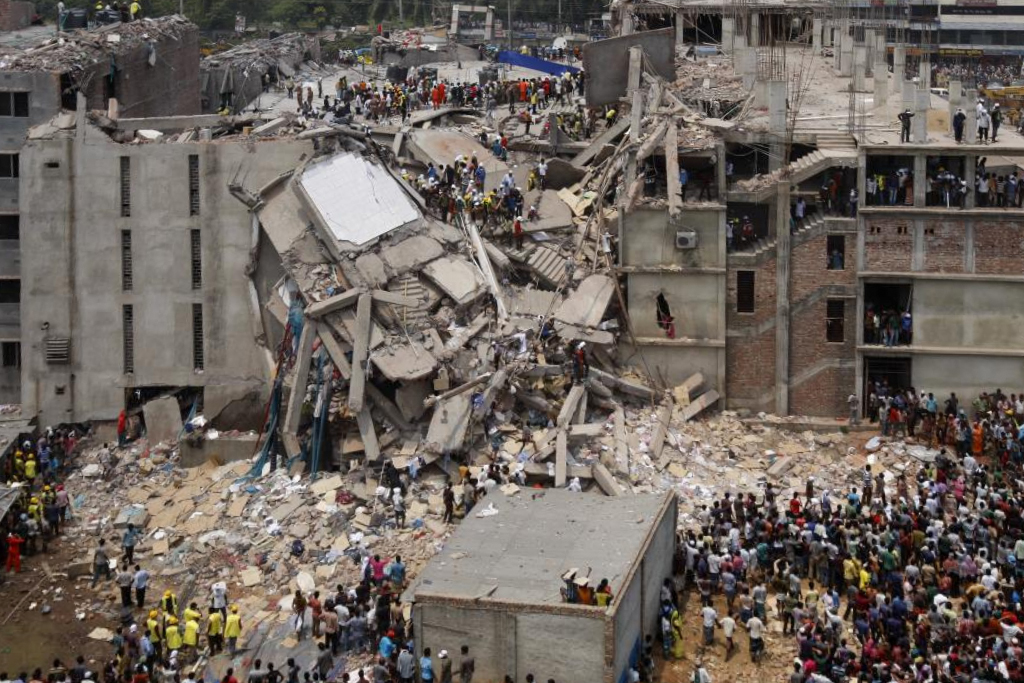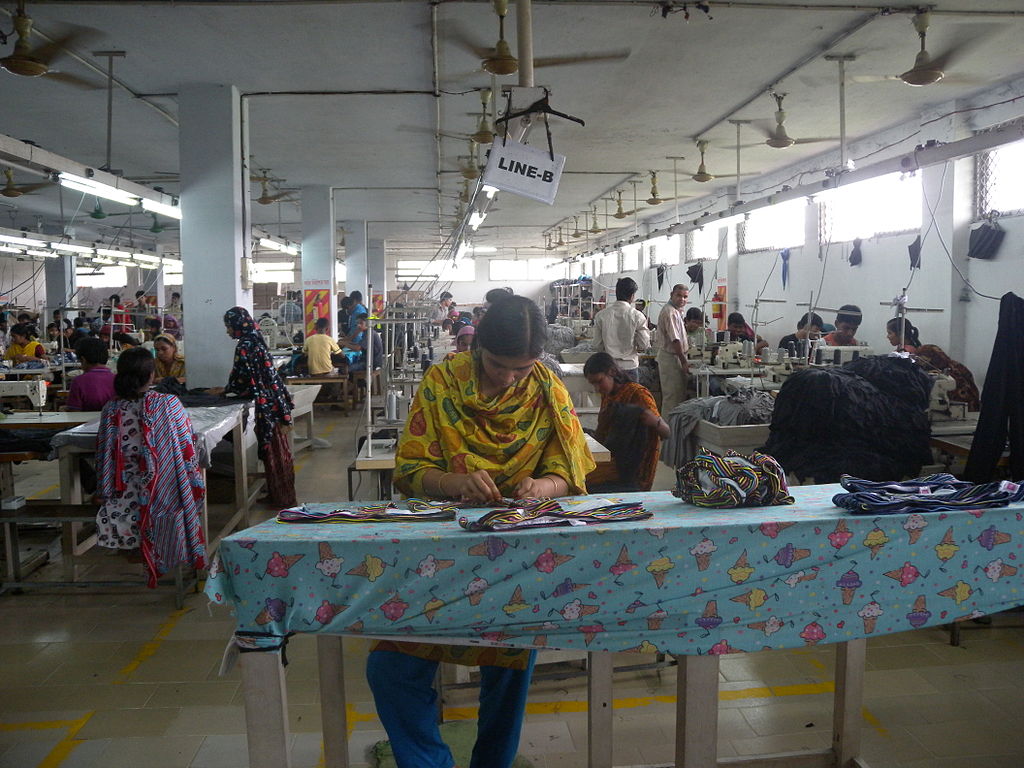Dhaka, Bangladesh —(Map)
On September 13, the Bangladesh government said that it was giving a raise of 51% to clothing workers. The clothing workers said, “No, thanks.” Why? Even with the raise, they would still only be earning $95 a month.
The garment (clothing) business, is big business. Every year it brings in trillions of dollars. But that’s for the companies that sell the clothes. Things are very different for the people who make them.

The situation is very different for the people who make the clothes.
They often work long hours in bad conditions for little money.
(Source: Fahad Faisal, from Wikimedia Commons.)
Clothing sold in countries like the US and many countries in Europe is usually made in much poorer countries. In these countries, workers must often work very long hours in bad conditions for very little money.
Bangladesh is one of these countries. Garment workers in Bangladesh are usually women, and sometimes children. They work for long hours, and the factories where they work are often unsafe. There have been many accidents caused by unsafe factories. In 2013, for example, a factory collapsed, killing 1,129 people.

In 2013, a factory collapsed, killing 1,129 people.
This disaster made people upset about conditions in clothing factories.
(Source: rijans, via Wikimedia Commons.)
That disaster got the attention of people in the US and Europe. They complained to the companies which sold clothes made in Bangladesh, and asked them to improve conditions. Some things got better. But big companies still put a lot of pressure on Bangladesh to create clothes cheaply.
Right now, the lowest amount of money a Bangladesh garment worker can be paid is about $63 a month. The amount hasn’t changed since 2013. It’s not enough for one person to live on, and definitely not enough for a family. Even the lowest paid government workers make three times as much.

Garment workers say they want twice as much.
That would be about the same as the lowest paid government worker.
(Source:Tareq Salahuddin from Dhaka, Bangladesh, via Wikimedia Commons.)
The government has said that it will raise garment worker’s pay in December. The new plan will make the lowest pay about $95 a month.
Bangladesh’s garment workers say that the government’s offer is not enough. They want at least twice as much – about the same as the lowest paid government worker. Last Friday, the workers held a protest to complain about their low pay. So far there is no sign that the government might offer more money.
Burning Clothes
While people in poor countries have worked long hours in bad conditions to make clothes, many big clothing companies have been burning or throwing away hundreds of millions of dollars worth of clothes that they can’t sell.
It may be hard to believe, but many large clothing companies, such as Burberry, Nike, H&M, Urban Outfitters, and others, have been destroying their clothes. These companies charge high prices for their clothes, and they don’t always sell all of them. But they don’t want to sell the extra clothes for less money, or give them away. They are afraid if they did that, people would stop paying high prices for them.

In July, it admitted that it had burned about $37 million worth of clothes last year.
Many companies do this, but most do not talk about it.
Burberry says it will stop burning clothes.
(Source: Dosdldyhai, from Wikimedia Commons.)
One of the companies, Burberry, made news in July when it admitted that it had burned about $37 million worth of clothes last year. Many companies do this, but most do not talk about it. Many people complained. Now, Burberry says it will stop burning the clothes that it doesn’t sell. Instead, it will try to make sure they get re-used.
😕
This map has not been loaded because of your cookie choices. To view the content, you can accept 'Non-necessary' cookies.
